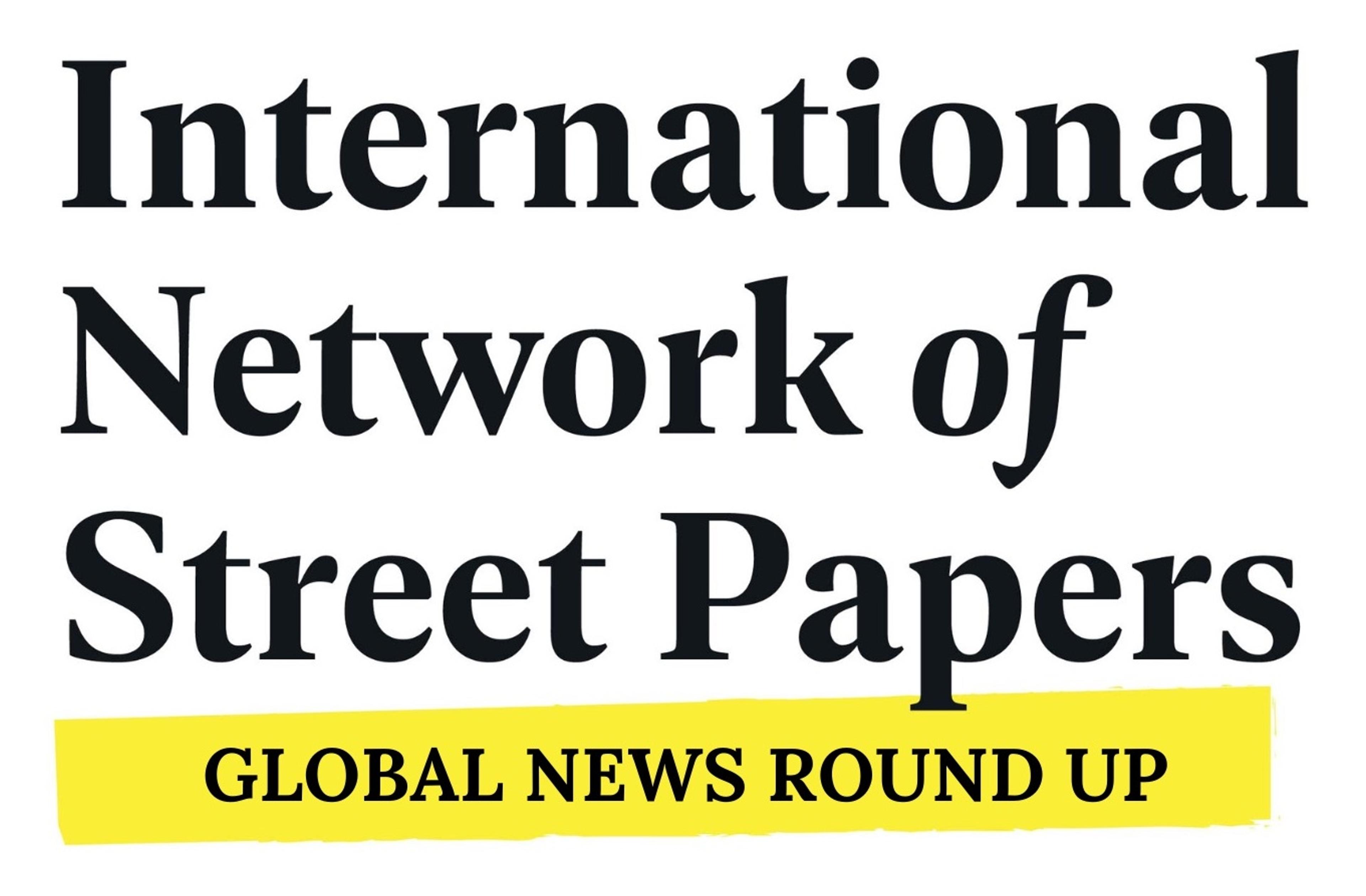Homeless communities protest to demand respect for their human rights and against forced displacement in Mexico City
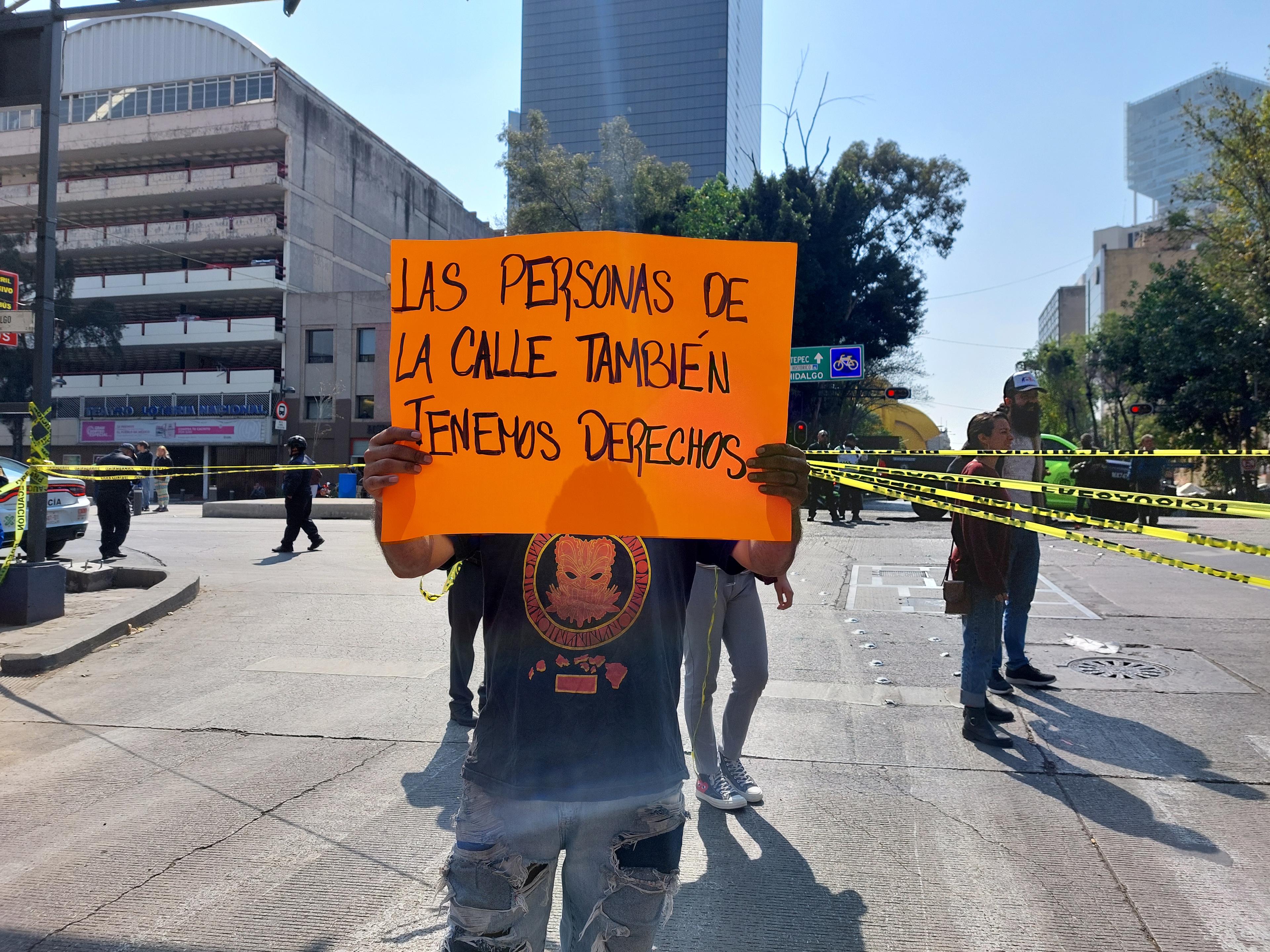
A protestor holds up a placard with a slogan in Spanish that translates roughly to "People on the streets have rights too". Credit: Erendira Aquino Ayala (@ere_aquino).
By Maria Cristina Perez Venegas
- News
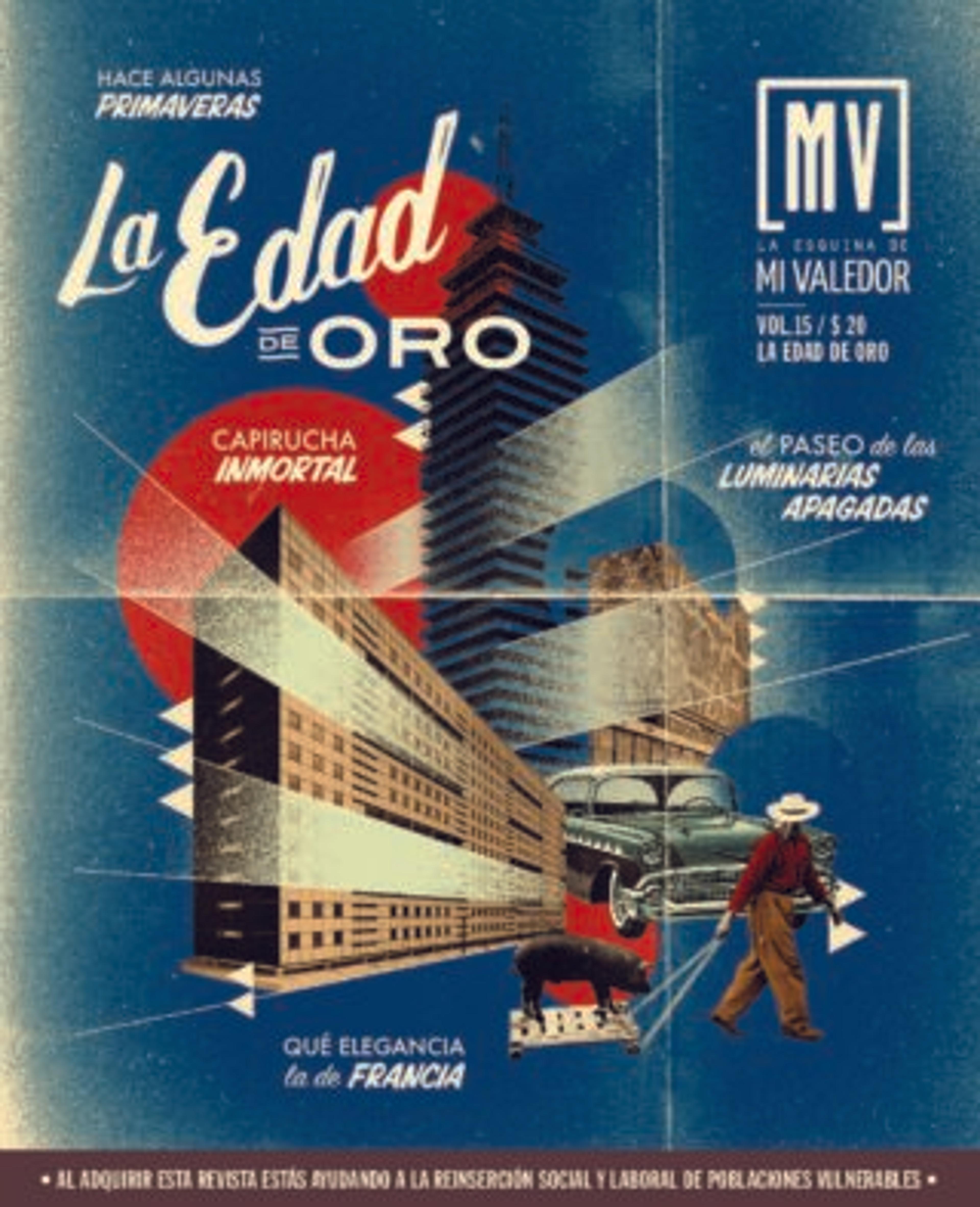
After a number of punitive anti-homeless measures were actioned by municipal authorities in Mexico City, including street sweeps and the endangering of marginalised communities such as homeless trans women, a cohort of protestors took to the streets to rail against these policies.
Friday 13 January was an important day for the streets of Mexico City, this "city of rights". An organised group of homeless people decided to put a stop to the acts of social cleansing. They were confident and forceful.
This is how it happened.
Before midday on Thursday 12 January, the Mayor of the Cuauhtémoc delegation (the city’s central neighbourhood), Sandra Cuevas Nieves,arrived at the Hidalgo metro station exit next to San Fernando square. Her intention was to continue with operations to "reclaim public spaces" by removing informal trade, rubbish and homeless people. This is what she said months earlier in a video she posted on her social media: "A very big problem we have are all those who don’t like order...we have many businesses that are being overwhelmed, we have people on the streets, we have many people who have problems with addiction and they come and take over the streets...we need the streets to look nice".
By this logic, in which the need for "nice" streets takes precedence over those who are homeless, the Mayor went to the site joined by her entourage, and asked the people staying there to move their belongings and leave the area. This request was met with insults, and the Mayor called them aggressors and criminals. One of the members of the entourage said to a woman from the affected group "you should get to work" (showing an ignorance towards the life trajectories that lead people to the streets, as well as the fact that people work on the streets to survive, be it through informal trade, washing windscreens or collecting recyclable material, for example).
After the authorities piled up their things in the street in front of them and placed plants in the grassy area from which they were removed, the people affected decided not to leave once again. This was not the first time they had been intimidated. Life on the street is compounded by police harassment, insults from neighbours and mistreatment (such as when the streets are cleaned and their belongings are soaked and removed, or pressure is put on them to go to filthy, overcrowded and punitive shelters).
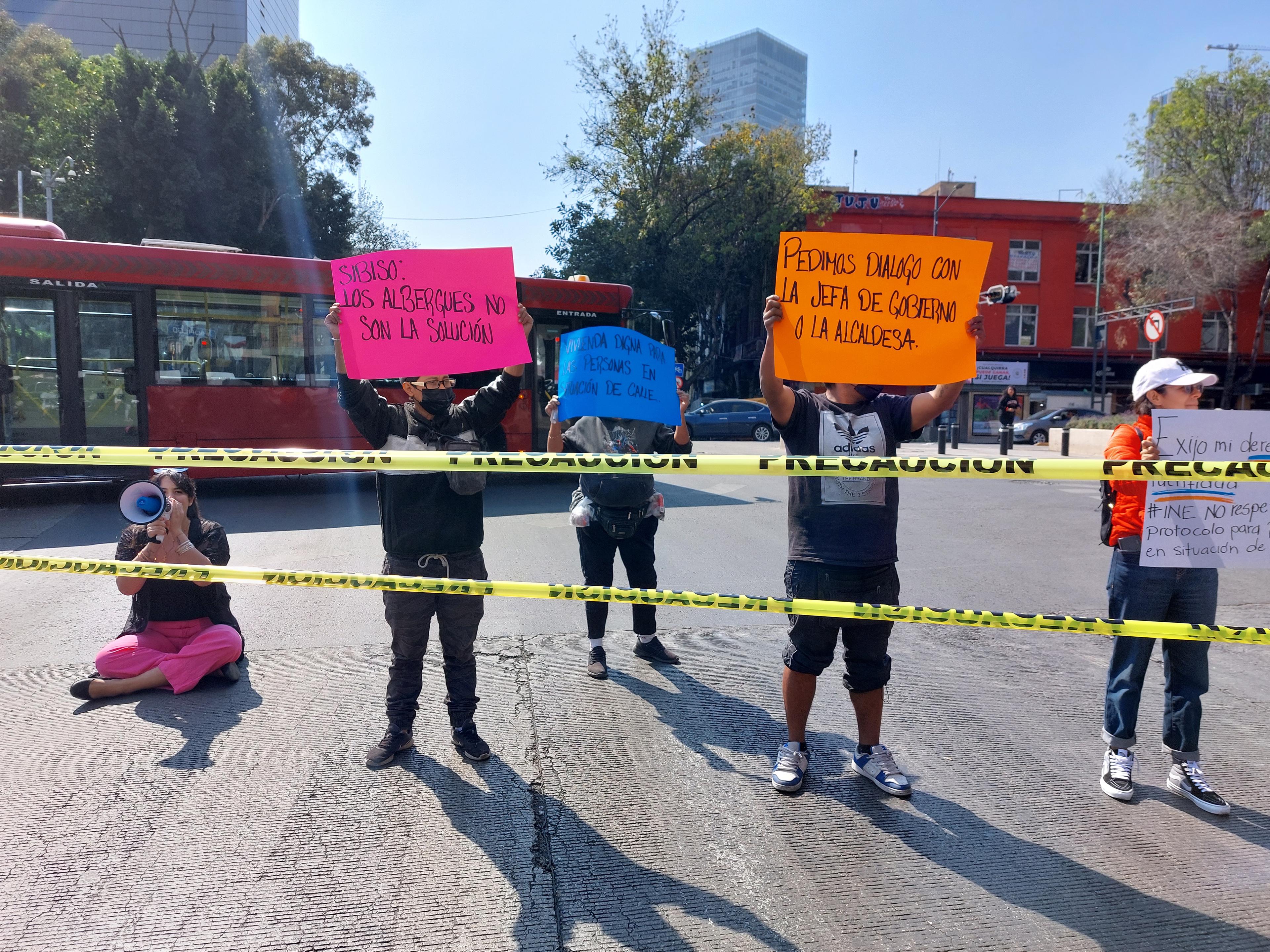
Various placards were held at the protest. One said: "Hostels are not the solution". Another said: "We ask for dialogue with the head of government or the mayor". Credit: Credit: Erendira Aquino Ayala (@ere_aquino).
Members of LLECA (a collective that brings together trans women living on the streets), Psicocalle, and other groups that support the homeless, came to back up this group of people. The women from LLECA were particularly upset that the alternatives the government claims to offer are shelters. One of her colleagues had recently been transferred to the Centre for Assessment and Channelling (Centro de Valoración y Canalización) known as ‘Coruña’. She reported that she had been violently beaten there for breaking the rules. She is a blind trans woman. There are many stories like this among those who inhabit public spaces. The shelters have not represented an effective or dignified alternative for those who have been forced to live on the streets.
So, on the initiative of those affected in the San Fernando area, they decided to put a stop to it. To organise, to speak out, to demand a meeting. On the Friday morning, they met to discuss options and together they decided to close the two avenues that intersect at the scene: Hidalgo and Guerrero. These are two very important roads in the city centre, so citizen pressure was soon felt. They stopped the traffic, displaying banners calling for a halt to the acts of social cleansing and demanding dialogue with the authorities. They stated that they would not surrender the streets until the Head of Government or her Secretary General appeared.
Members of the Mayor's office arrived on the scene, but refused to talk to them. Later, the head of the National Council to Prevent Discrimination and the personal assistant to the Secretariat of the Interior arrived. They agreed to talk to them, but when they asked them to leave the streets and go to their government offices for talksthey replied that they would not end the protest if the talks did not take place right there in the street. Victoria Sámano of LLECA exclaimed that much of the problem had to do with the distance between the government officials and the streets, and that it was time for them to get closer to the streets. In a way they said: "These are our offices! This is where we are going to talk."
Six hours after the blockade began, the Secretariat of the Interior appeared. They then allowed traffic to circulate and established agreements. In the coming weeks, talks will be held to seek solutions to the confrontation between the authorities and those who live there.
Throughout the protest they made it clear that shelters - where frequent mistreatment is alleged - are not the solution. They demand decent jobs or facilities to access housing.
Some onlookers insulted them, shouting things like "get to work!" They encouraged each other to remain calm and peaceful, as it was clear to them that the way to a solution lies in talking to each other.
Translated from Spanish by Daniel McLeod
You may also be interested in...
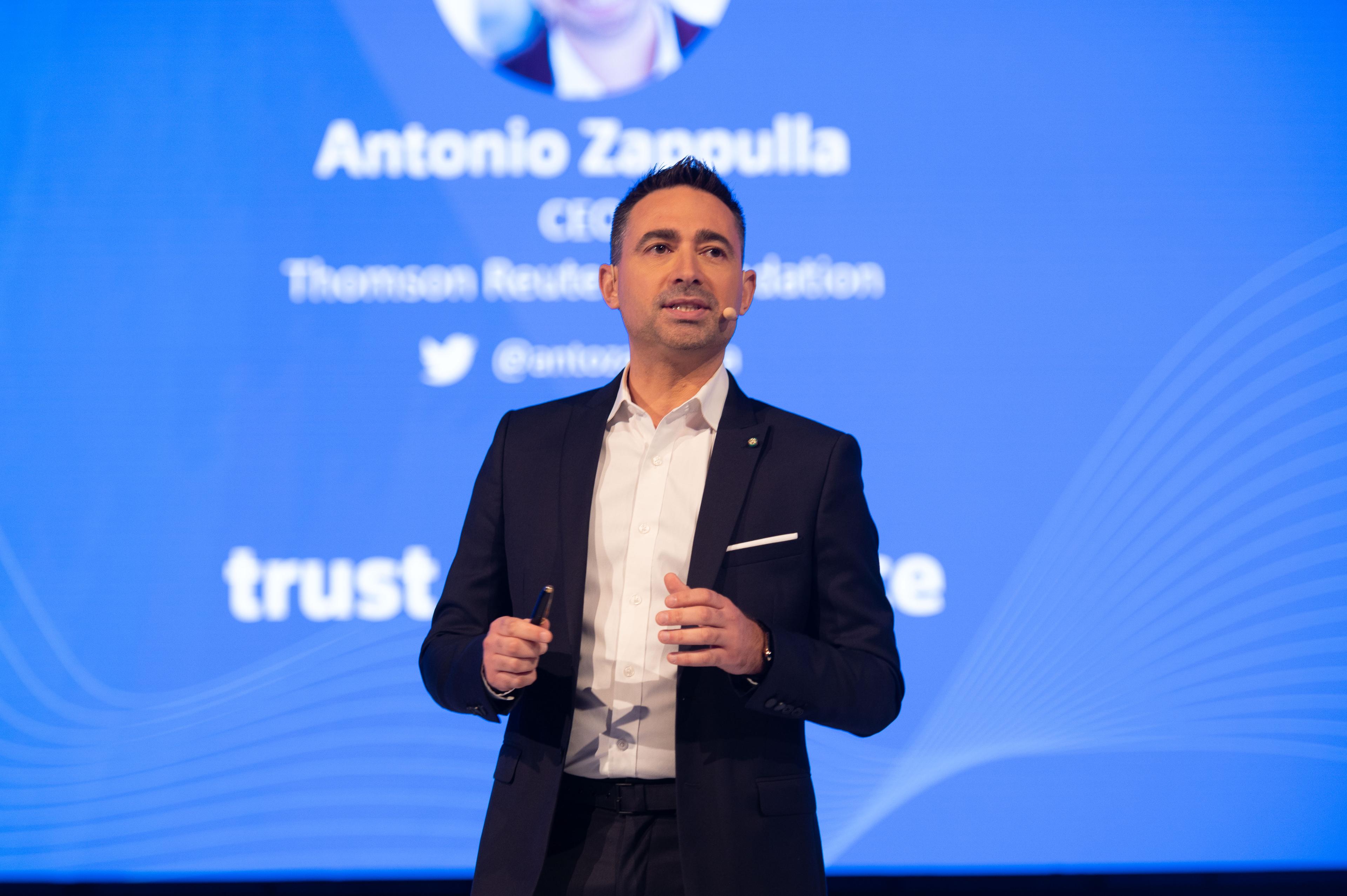
Street papers are “giving a lifeline and dignity back to people who have lost everything, sending a powerful message to homeless people that they are visible,” says Thomson Reuters Foundation Chief
Read more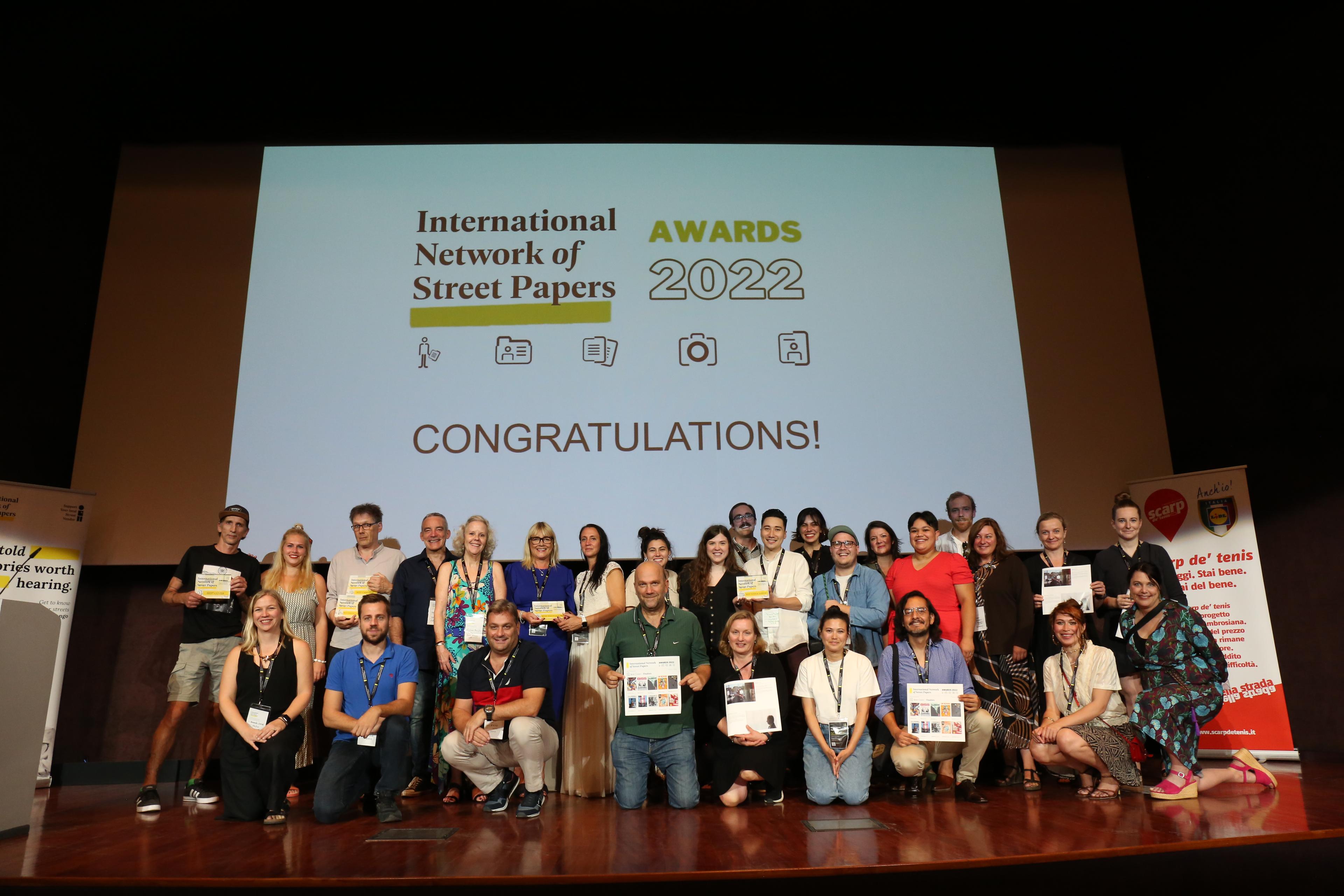
INSP Awards 2022 - WINNERS!
Read more